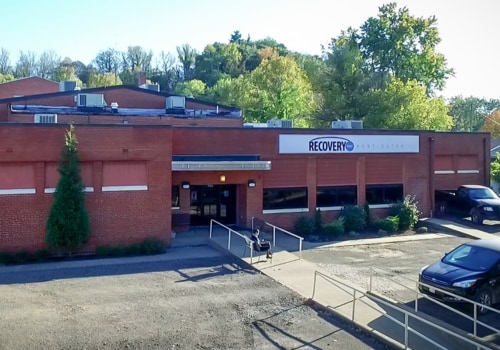Someone sober is not intoxicated; they are sober. But isconstant abstention from alcohol a requirement for being sober or leading asober lifestyle? Yes, at least by the accepted medical definition of sobriety,which is a viewpoint supported by well-known recovery groups like AlcoholicsAnonymous. This adverb conveys the antithesis of playful or inebriated. You aresupposed to remain sober in both directions when you go to a funeral.
Alcoholics and addicts struggle to be honest withthemselves. Being sober entails being free of addiction. When you don't drinkalcohol, you can control your emotions and it could even be beneficial. A stateof sobriety is the absence of any detectable effects or quantities of alcoholor drugs.
It is also believed that being sober at birth is a person'snatural condition. Sober one is said to be sober. The temperance movement'sgroups have promoted sobriety as the standard in society. In reality, beingsober first and foremost means not being drunk.
It does not imply abstinence as that term is used in AA. Inactuality, the DSM psychiatric manual does not include any abstinence criterionfor recovery (unbeknownst to almost everyone who uses it, even the specialistswho write about it) (actually called remission). No issues utilizing or not usinga substance is what addiction and remission have to do. The Merriam-Websterdictionary defines sober as not intoxicated or avoiding intoxicating substanceslike alcohol or narcotics.
Being sober can also imply abstaining from taking any addictive chemical.
A person who is sober, or not drunk, is not intoxicated. Butis continual abstinence from alcohol a need for sobriety or a sober lifestyle?Yes, at least by the accepted medical definition of sobriety, which is aviewpoint supported by well-known recovery groups like Alcoholics Anonymous.
According to Keith Humphreys, Ph. D., a professor ofpsychiatry at Stanford University, "In medicine, we define sobriety byobjective criteria, namely not using alcohol." His studies focus on theearly detection and management of addiction illnesses. But many people who arein recovery from alcoholism define it more broadly to encompass a freshperspective on life, changes in relationships, and a sense of spiritualtranquility.
In addition, there are "moderation management"strategies that, as opposed to outright banning alcohol, assist individuals tomoderate their problematic drinking behaviors. According to James R. Langabeer,Ph. D., a professor of emergency medicine and vice chair of population health atthe University of Texas Health Science Center, this is effective for somepeople but might not be appropriate for someone with a real drug use issue.
According to him, people are prone to substance abuse andthese chronic brain disorders are partially brought on by neuroanatomy. Thedisease may need lifetime care since it is persistent.
What exactly is recovery?
According to Andrew Finch, Ph. D., an addiction specialistand professor of human and organizational development at Vanderbilt University,the term "sober" often refers to giving up alcohol, whereas personswho stop taking other substances are frequently referred to as"clean." The idea usually implies abstinence in both scenarios.
Finch adds that the vocabulary used in the area ofaddictions has started to change and become more "recovery" oriented.
"Recovery" has a more holistic meaning thatincorporates physical/emotional/behavioral states, whereas the phrases"sober" and "clean" are exclusively connected with the actof drinking or using, he argues. While it often entails a reduction in usage oruse of substances viewed as less "harmful," recovery does not alwaysnecessitate complete abstinence. There are several definitions of recovery.
Finding the correct path to recovery
Humphreys emphasizes that there are several paths tohealing.
This isn't a religion, he asserts. "Whatever helps youget to a position where alcohol isn't wrecking your life is the route foryou."
Due to the brain's natural problem with self-regulation andbehavior regulation, Langabeer thinks abstinence is likely the only option toachieve full recovery for the majority of persons who have been clinicallydiagnosed with a drug use disorder. However, they would not meet the criteriafor a clinical diagnosis of a drug use disorder.
What is the best route?
According to Finch, treating a drug use problem is differentfrom giving up drinking to lose weight or save money, therefore the idealrecovery route will mainly rely on your motivations for pursuing sobriety.
You may start by going to a therapist or recovery expert,advises Langabeer, or by attempting a free mutual-help group, which can offercrucial connections to promote recovery. (He suggests using the SAMHSAtreatment locator to identify services close to you.)
Find a qualified counselor who has had training in a varietyof ways, advises Finch, and who can assist you in determining which could bemost beneficial for you. A screening determines the severity of a person'sdisease, and then brief interventions are used to discover an appropriaterecovery plan in one evidence-based strategy called Screening-BriefIntervention-Referral to Treatment (SBIRT).
Sobriety: temporary vs. permanent
As a purge or a test for extended sobriety, some peopleabstain from alcohol or other substances for short periods, frequently formonths like Dry January. That could be beneficial in some circumstances. Butaccording to specialists, it shouldn't be mistaken for care for those who havesubstance use issues.
Langabeer thinks that it won't be sufficient on its own, butfor some people, a month of abstinence could be a helpful first step.
Regarding attempts at short-term sobriety, Langabeer admitsthat he has "mixed sentiments." "From a clinical standpoint,sobriety is binary. However, temporarily giving up alcohol may help you realizethat these new behaviors are preferable to your current ones, just like fastingmay cause you to like consuming fewer calories, or a week of eating onlyveggies may cause you to consume less meat.
Everyone needs "clear eyes" to see what they aredoing, where they are heading, and how they should get there, he continues."Everyone who takes recovery seriously redefines themselves—they findthemselves—they view life differently and never want to swap their new life fortheir old one. Therefore, it can't be harmful if a brief fast brings clarity.








Leave Reply